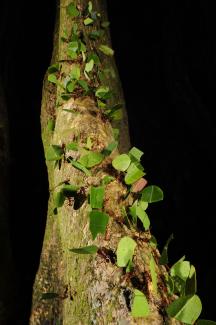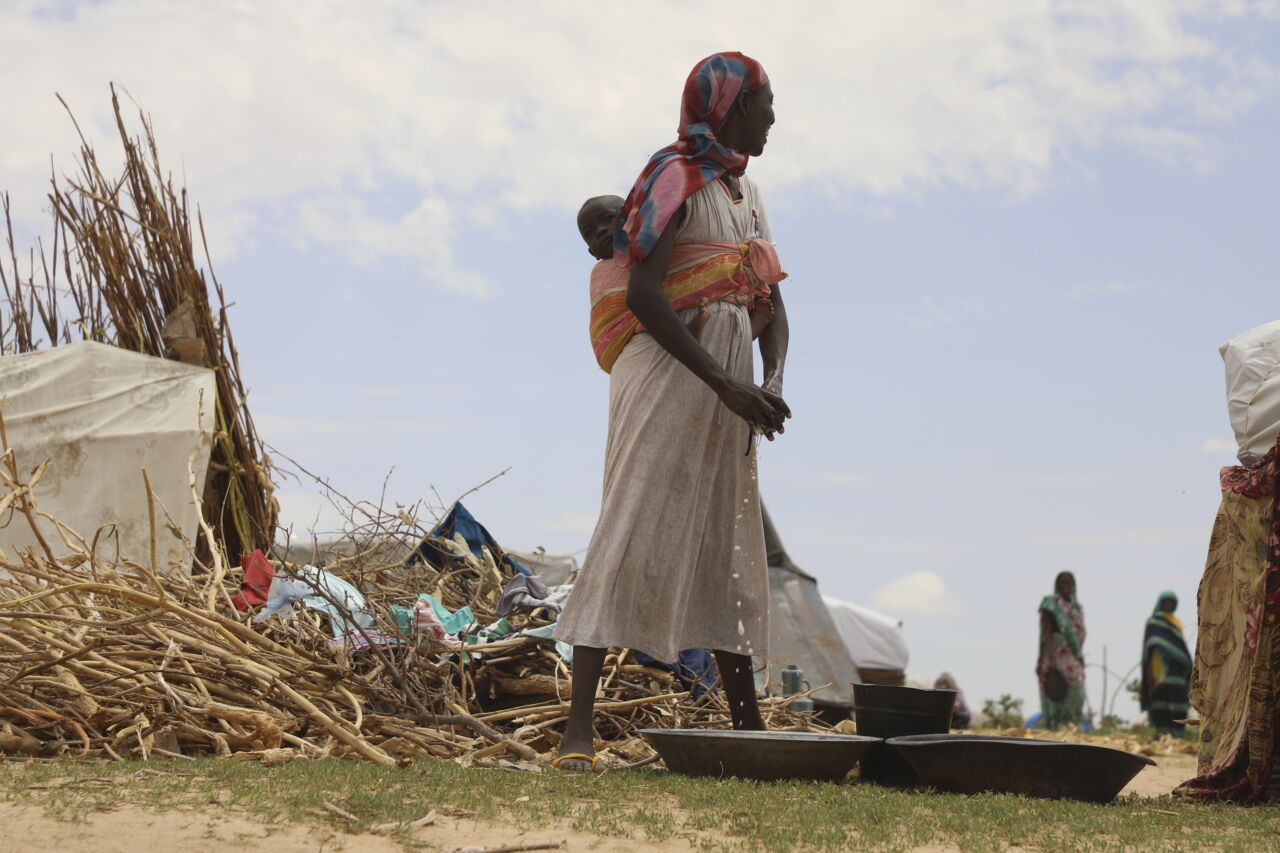Global public goods
The web of life

According to Harvard Medical School’s website, an eminent professor once said about ants: "We need them to survive, but they don’t need us at all." The website goes on to state that this is true of "countless other insects, bacteria, fungi, plankton, plants and other organisms". The reason is that ecosystems depend on the multitude of life forms which serve as checks and balances on one another.
The food, water and air human beings need would not be available without the natural environment. Biological diversity is a crucial component of that environment. It is the safety net that assures ecosystem equilibrium all over the world. Indeed, it ensures our survival.
Accordingly, biodiversity is a precondition for human health. This is true at several levels, as the World Health Organisation (WHO) points out on its website. Relevant aspects include:
- Food production depends on the genetic diversity of cultivated plants (also note interview with Gerd Müller in this edition, page 76 ff.), and a diverse diet is good for human health.
- Biological resources are the basis for traditional medicines, which are used by about 60 % of the world population.
- Biological resources are also the basis for developing many innovative pharmaceuticals. Accordingly, the loss of biodiversity may imply that active agents for potentially groundbreaking pharmaceuticals are never even discovered.
- Patterns of infectious diseases change when human activities disturb ecosystems. The WHO argues that such disturbances "reduce the abundance of some organisms, cause population growth in others, modify the interactions among organisms and alter the interactions between organisms and their physical and chemical environments".
Other international organisations express similar views. The Montreal-based Secretariat of the UN Convention on Biological Diversity stated in a policy brief of 2010: "Biodiversity loss and ecosystem change can increase the risk of emergence or spread of infectious diseases in animals, plants and humans, including economically important livestock diseases, zoonotic outbreaks and global pandemics." The authors reckoned that outbreaks of SARS, Ebola and other diseases have been triggered by human impacts on natural environments. They warned that: "Without a greater understanding of disease ecology, there is a risk that programmes to tackle infectious diseases may impact negatively on biodiversity, through use of biocides and other chemicals and wildlife culls."
The sad truth, of course, is that biodiversity is eroding fast. Scientists speak of the "sixth great extinction". More species are disappearing nowadays than ever since the dinosaurs roamed the Earth before the fifth great extinction millions of years ago.
The trend is worrisome and, like climate change, a symptom of human behaviour. Funding from advanced nations can and must contribute to protecting biodiversity around the world. But aid is not the main way forward. "All countries must ensure wise stewardship of nature, and to achieve this, effective management is essential" says Peter Bridgewater, a former head of the UNESCO Man and Biosphere Programme and of the Ramsar Convention on Wetlands.
In his experience, comparatively small amounts of money can serve as catalysts for synergising local support – and that is often more effective than investing huge amounts. "Chilka Lake in India is a very good example, Tonle Sap Biosphere Reserve in Cambodia is another," Bridgewater says, speaking of the Ramsar Convention’s small grants programme which involves communities that live on or around a wetland.
In his eyes, the lesson of big money not necessarily being smart money has not been learned yet. At the same time, he is convinced that donor governments will never come up with the sums that developing countries demand. There is no doubt, however, that biodiversity is a global public good that deserves multilateral attention.
Indeed, health, environment and development issues have been dealt with at the four global conferences on human development and the environment. In Stockholm in 1972, in Rio de Janeiro in 1992, in Johannesburg in 2002 and in Rio in 2012. Many other significant initiatives evolved in parallel. The 2008 Libreville Declaration on Health and Environment in Africa, for instance, should not be shelved. It recognised that Africa is the world region most vulnerable to environmental change.
One of the Libreville Declaration’s outcomes was the creation of the Health and Environment Strategic Alliance. In the spirit of the Millennium Development Goals (MDGs), its objective was coordinated action by the health and environment communities so as to promote and protect public health and ecosystem integrity in the development process. This worthy goal must not be given up.
Human condition will deteriorate
It is now consensus that, after 2015, a new UN agenda will follow the Millennium Development Goals. Bridgewater says: "The focus of the MDGs is on poverty reduction and the social dimensions of human development; they were conceived as traditional development goals but the process failed to recognise that development without environmental support is not sustainable." He wants biodiversity to figure in the post-2015 agenda: "Otherwise, we are doomed to a world where the human condition will continue to deteriorate." For Bridgewater, the idea that human health is simply an issue to manage by curing illnesses misses a major point. Health, in his eyes, must be prompted through a healthy environment. And that is particularly so in disadvantaged countries that have scant resources and cannot easily compensate ecosystem failures. Poor communities in particular depend on what environmentalists call the "web of life".
Bridgewater is an observer of how existing ecosystems change and new ones emerge. The sheer rate and unknown direction of change means that the impacts on human health are uncertain. The challenges are huge and require lots of research in order to understand interlinkages, risks and opportunities: "What is required is a focus on health care that incorporates biodiversity management," Bridgewater argues.
The European Commission basically shares this view. In 2011, it published a policy brief on biodiversity and health which stated: "Improving scientific, political and public understanding of the connections between biodiversity and health will be key to ensuring that the consequences of biodiversity disturbances, and any resulting impacts on human health, are minimised."
Mathieu Régnier is an independent environmental communication consultant.
mr@mathieuregnier.com














